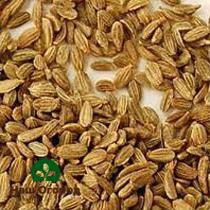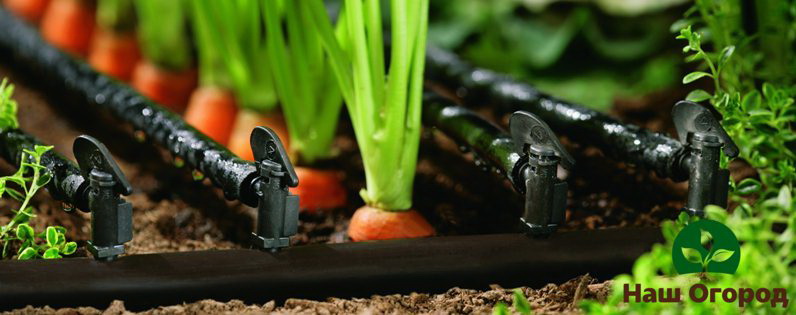Conditions for growing carrots
Vegetable crops are exactly the same living organisms, like us, requiring the necessary conditions for development and growth, location, certain care and attention to oneself. In this case, consider the conditions for growing carrots. It would seem that since it is almost everywhere, then it is easy to grow it. Is it really?
It is necessary to highlight the basic conditions for growing carrots, which determine the quality of growth of a particular plant: these are heat, light, air humidity, soil moisture, the composition and set of nutrients in it, as well as the optimal carbon dioxide content in the atmosphere. Here are how many different outdoor carrot growing conditions should be followed in order to ultimately get a healthy and rich harvest, including from fresh carrots.
The undoubted plus of this culture is that, unlike those that are of southern origin (tomatoes, cucumbers, etc.), optimal conditions for growing carrots can be found in most climatic zones of Russia, even in the strip that does not differ in the presence chernozem lands.
Starting the discussion with the issue of heat, it should be noted that carrots are very resistant to low temperatures culture, moreover, its growth is noted, in principle, as increased in cool weather. Its seeds are characterized by germination even at 3-4 degrees, the seedlings also tolerate these indicators. Adult plants can withstand about 8 degrees, but this, unfortunately, does not apply to formed root crops, so you should not risk it - at the first signs of frost, they are damaged, becoming vulnerable to subsequent putrefactive processes. If we talk about the optimal temperature for the development of healthy formed root crops as an important condition for growing carrots in the open field, then the value is about 15-20 degrees. Too high air and soil temperatures can lead to effects such as coarsening of the carrot structure, as well as its deformation.
As for lighting as an important condition for growing carrots, here, of course, the first thing to pay attention to is the sun - its main source. Do not plant carrots in the shade, because in any case, it needs solar energy to ensure photosynthesis. The synthesis of all kinds of enzymes, as well as chlorophyll, vitamins, the formation of functioning key organs, and of course the overall quality of the crop - all this equally depends on the rate of light production, therefore, in no case should it be neglected.

Carrots belong to the so-called long daylight plants. The fact is that the duration of exposure to sunlight and energy affects in completely different ways on different cultures, on their growth and development - if for some cultures the duration of daylight hours is considered to be less than 12 hours, then for others - more. Just carrots, based on this definition, being, in turn, a particularly light-loving plant, with its lack, does not have time to properly grow and develop. Signs of this can be a significant stretching of the plant, as well as a lack of dry matter. Therefore, for planting this culture, again, one should select a place where the sun's rays will stably fall and which over time does not undergo shading, say, due to obstructing buildings on the site or tall dense trees. The optimal location of the carrot beds is considered to be from north to south.
As with all vegetable crops, carrots should be regularly supplied with water. Watering is an equally important part of the growing process, except for which you can simply ruin the culture even before it gives its first harvest. Thanks to water, the plant receives the necessary mineral salts and metabolic products, dissolution of carbon dioxide occurs and, therefore, oxygen is released.

The soil for growing carrots should not have a dense crust on the surface - be sure to dig it up first and take care of a sufficient level of air permeability, which is equally necessary for vegetable crops for normal development. Excessive moisture can also prevent this, so take care of the arrangement of drainage, if necessary, and also do not exceed the watering rates. Use fertilizers to saturate your crop with the amount of carbon dioxide it needs.
Trace elements are also an important prerequisite for the cultivation of carrots. Of the trace elements necessary for carrots, such as calcium, potassium, nitrogen and phosphorus should be distinguished. A small amount is also characteristic of the consumption of magnesium, iron, zinc, copper, boron and other elements. The vast majority of these substances are provided by water, but some of them are also found in fertilizers and soil. Carrots are an extremely useful vegetable culture, enriched with a plant component - beta-carotene, which has a beneficial effect on the human body. Growing carrots on your own plot is a good thing and a great choice if you care about your condition and prefer to consume healthy food. Having allocated at least one garden bed for this wonderful vegetable and observing all the conditions for growing carrots in the open field, you can provide yourself and your loved ones with vitamins for the whole year




